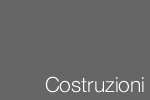
Earth-moving machinery: An analysis and assessment of accident statistic
Earth-moving machinery: An analysis and assessment of accident statistics
The operation of mobile equipment such as loaders or dump trucks is a source of danger in the building materials industry. The risks arising from the use of mobile equipment can be direct or indirect.
All types of accidents represent direct risks.
The operator of the equipment themselves can be affected, for example when their equipment is involved in an accident or fall, as well as uninvolved third parties who are hit or run over by vehicles. Repair and maintenance work on vehicles is also a constant source of risk for personnel.
Indirect risks are presented by illnesses which can be caused by constant and un-ergonomic loads.
In the year 2002, 8078 notifiable accidents were reported to the German quarrymen's employers' liability insurance association (Steinbruchs-Berufsgenossenschaft - StBG).
This corresponds to 54.39 accidents per 1000 employees. In the same year there were 21 fatal accidents.
These figures do not include any information on the type of accident, but it is known that a considerable number of these accidents were associated with the use of mobile equipment.
Although both the overall number of accidents and the number of fatal accidents could be reduced in recent years, the numbers are still too high.
Accidents do not only endanger lives, they also prevent jobs from being completed, they burden the company and result in increased costs.
Apart from accidents at work, material damage must also be considered, which does not involve injuries but can result in significant damage to company assets.
When considering the design of earth-moving machines, it is striking how the manufacturers, for example in the design of loaders, always retain the original basic design and how fundamental changes e.g. in the access steps, have not taken place.
Within the scope of this project, we will thus investigate mobile equipment, in current use from various manufacturers, for weak-points concerning the risk of accidents and ergonomic problems.
The areas where accidents occur will be pointed out and analysed.
In addition, ergonomic weaknesses in the equipment should be revealed, which can lead to permanent injury to the vehicle driver.
These analyses can then be used to help develop an improved basic concept for mobile equipment.
The objective here is then, if possible, to completely remove all risks to the driver and third parties.
In a further step this new concept could be implemented, making use of “Industrial design” principles, so that vehicles can be designed which are ideally suited to their purpose as well as providing a safe and healthy working environment.
StBG - Germany
Authors:
Prof. Dr. Ing. habil H. Tudeshki
Dipl. Ing. Matthias Könnecke



















